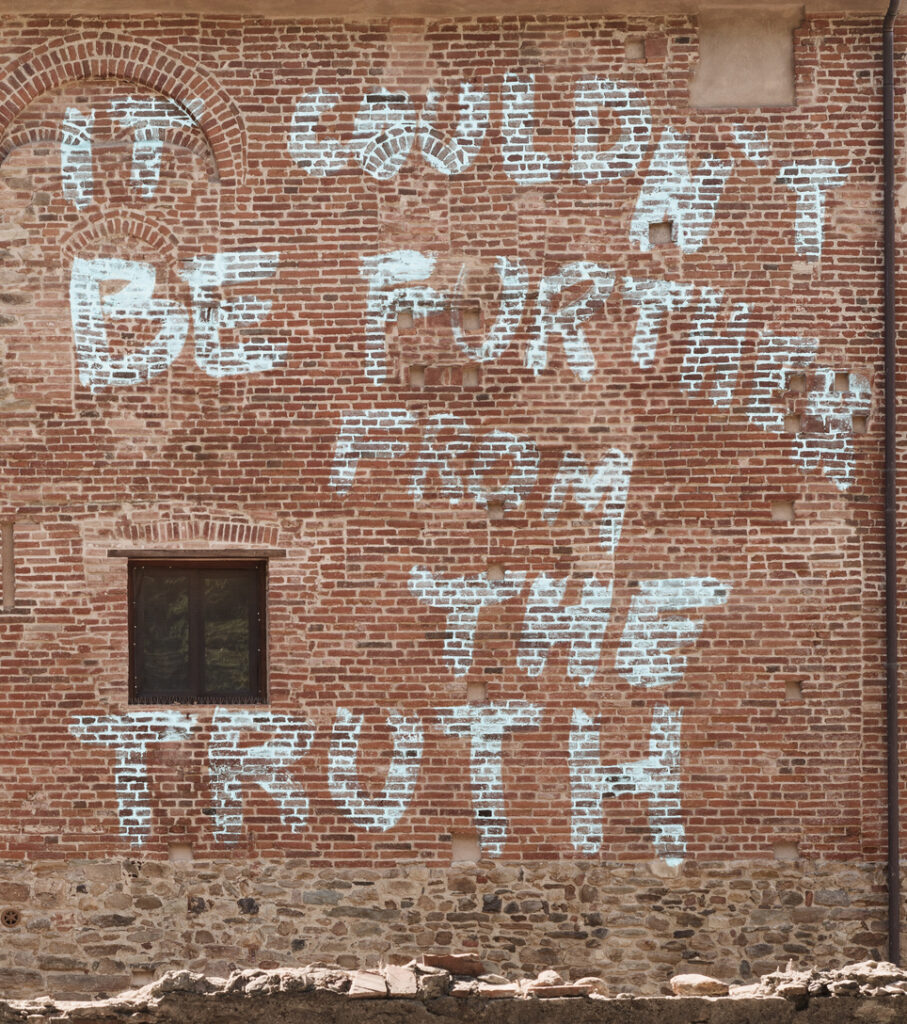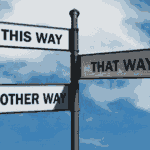Trusting Truth: Why ‘Experts Say’ Isn’t Enough
How to Think Critically in a Shifting World
We’ve all heard the phrase, “experts say…” Sometimes it’s about health, sometimes about food, sometimes about how we should live our lives. And if you’ve been paying attention for any length of time, you’ve probably noticed something: what the experts say keeps changing.
Not long ago, eggs were considered dangerous for your heart – something to eat sparingly, if at all. Then, almost overnight, they became a protein-packed superfood. Before that, butter was the villain, only to be replaced by margarine – until we found out margarine is actually worse. And coffee? One day it was linked to health risks, the next day to health benefits.
These reversals aren’t just about food. They reveal something deeper – how quickly many accept information without testing it based on its source, and how often “truth” shifts when the next study is released.
Highlighting Two Kinds of Thinkers

Over time, especially during moments of cultural uncertainty, I’ve noticed two dominant ways of thinking.
The first group has impressive mental retention. Their strength lies in absorbing, recalling, and applying information. They thrive in structured environments and excel in school – they can quote data, cite reports, and repeat what they’ve been taught with precision.
The second group, often less celebrated, relies more on logic than memorization. They don’t depend on recalling vast amounts of information to arrive at conclusions. Instead, they break down ideas, spot inconsistencies, and apply reason to new or untested situations. They don’t accept claims merely because they come from authority – they need to know the claim makes sense. This group often challenges accepted truths that don’t align with logic.
Both groups can reach similar conclusions when knowledge is clear and consensus is strong. But when the waters are murky – when experts disagree or new information emerges – the difference in these thinking styles becomes clear.
Yet there’s another layer. For most people, it’s easier not to challenge what they’ve accepted as truth. Beliefs carry emotional weight. They shape identity, comfort, and how we relate to the world. Questioning them can feel unsettling, even threatening. This emotional attachment often makes it harder to separate fact from familiarity, truth from tradition.
Paul observed this tendency in the early church. Some Corinthians were saying, “I am of Paul,” or “I am of Apollos,” creating divisions based on loyalty to people rather than to truth itself (1 Corinthians 1:12–13). Emotional attachment to sources – whether leaders, studies, or traditions – can cloud judgment and make it harder to discern what is accurate and reliable.
When the Experts Disagree
This divide is especially visible in areas like science, public health, and theology. Some people align with the conclusions of their camp or denomination without ever questioning how those conclusions were reached. Often, this isn’t just convenience – it’s also comfort. Once a belief has taken root, it carries emotional weight. Challenging it can feel risky or unsettling, making it easier to accept authority at face value rather than critically examine the claim.
Others, perhaps too few, dig deeper. They ask questions, examine evidence, and test claims against logic and Scripture.
In both religious and secular realms, many people simply echo what they’ve been told by their trusted group. Whether it’s the nutritionist on TV or the theologian behind the pulpit, their reasoning begins and ends with credentials. The mind shuts down. “It must be true,” they say, “because they said so.”
But others – those who take time to reason and question – keep thinking. They ask, “Why? Is that consistent? What’s the reasoning? Is there a better way? Does that make sense?” These are the people who, even when truth is inconvenient or challenges comfort, continue to reason and test.
The Biblical Case for Discernment
This approach – taking time to reason and question – isn’t just a personality trait or a modern principle; it’s an approach Scripture commends and encourages.
Paul praised the Bereans in Acts 17:11, not for believing him blindly, but for testing everything he said against Scripture. They were called “more noble” for that discernment. Their example shows that careful reasoning and examination are not only acceptable but commendable in matters of faith.
God invites reasoning as well: “Come now, let us reason together” (Isaiah 1:18). Proverbs encourages us to “search out a matter” (Proverbs 25:2). And Paul instructs believers to “test everything; hold fast to what is good” (1 Thessalonians 5:21, ESV).
Faith is not meant to bypass reason. It rests on tested truth – not passive acceptance. Discernment is not doubt for doubt’s sake; it is the practice of holding our beliefs up to the light of evidence and Scripture, ensuring that what we accept is solid and reliable.
Why This Matters

We live in an age of constant information, much of it contradictory. As debates intensify, the ability to memorize and repeat has never been more apparent – or more dangerous. When truth becomes defined by popular opinion, authority, or comfort, it risks losing its anchor in reality.
Those who think logically, reason carefully, and test what they hear rather than parroting it are increasingly uncommon in a world that rewards quick answers over deep thinking. Yet for those who follow Scripture, this is essential – not as a display of intellect, but because all things should be tested.
In spiritual matters especially, this distinction is critical. Many follow traditions or doctrines without ever asking:
- Is this what God actually said?
- Is this consistent with Scripture?
- Or am I just trusting my group to be right?
Cultivating the Mind of Truth
In a world of endless information, we need fewer followers and more thinkers. We must stop mistaking memory for wisdom, and credentials for clarity. Truth withstands examination. It welcomes questioning. It invites reasoning.
Even when compliance is rewarded and doubt is labeled as rebellion, we must keep thinking. Keep testing. Keep holding fast to what is good – not just what is widely accepted.
Because in the end, it’s not about who said it.
It’s about whether it’s true.


